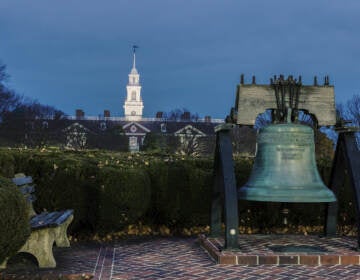US Senate Judiciary Committee holds hearing in Wilmington focusing on law enforcement
Law enforcement agencies are more able and willing to share information with each other, but challenges remain according to those who testified at a US Senate Judiciary Committee field hearing in Delaware.
Senator Chris Coons (D-Delaware) and committee Chairman Patrick Leahy (D-Vermont) brought the panel to Wilmington with the goal of highlighting Delaware initiatives that could serve as role models for the rest of the nation.
Delaware State Police Superintendent Colonel Robert Coupe told the committee that attitudes were different before the terrorist attacks of September 11th, 2001.
“While departments would occasionally share case data, it was not a formal practice and was more dependent on friendships between individual investigators,” Coupe said. “Such information or intelligence was considered proprietary of whatever agency had collected it, and it was not disseminated to neighboring jurisdictions on a regular or consistent basis.”
Now, State Police oversee DIAC, the Delaware Information Analysis Center. It collects and distributes information about possible threats and hazards.
Dover Police Chief James Hosfelt also reflected on the attacks of nearly a decade ago, when Delaware’s capital city hosted the first major sports event in the country following the attacks: a NASCAR race at Dover International Speedway.
“The success of that weekend, and all of those following, is because of the teamwork between a private business, federal, state and local law enforcement agencies,” Hosfelt testified. The chief added that shared information has also paid off with significant arrests in drug-related crimes.
“There was a day in law enforcement when teamwork and partnership were virtues. Today, they are absolute necessities,” FBI Special Agent in Charge of the Baltimore Division Richard McFeely said.
Coons said despite the growth in technology that allows law enforcement agencies to share information, challenges still remain: smaller agencies, particularly in rural areas, can still be overwhelmed if there is serious crime, while northern Delaware communities are often impacted by crime with out-of-state roots and connections.
“Meeting these challenges requires collaboration with our federal partners,” Coons said.
The committee also heard from Delaware Criminal Justice Council Executive Director Drewry Fennell and U.S. Justice Department Deputy Director of Justice Assistance James Burch.
The witnesses also discussed the importance of several federal grant programs that assist law enforcement in Delaware that facilitate efforts to investigate crimes and suspicious activity.
WHYY is your source for fact-based, in-depth journalism and information. As a nonprofit organization, we rely on financial support from readers like you. Please give today.




